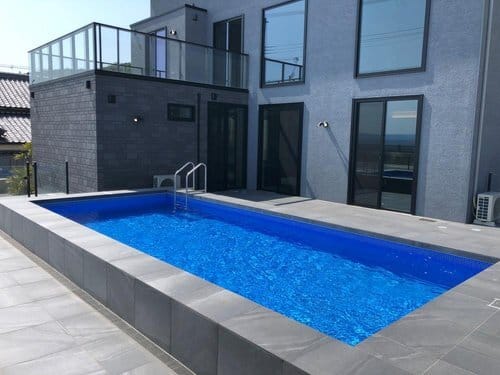- Japan Dream Houses
- Posts
- Japan Dream Houses: The Minimalist Post | JDH 018
Japan Dream Houses: The Minimalist Post | JDH 018
Dream houses for Dreamers and Lovers of Japan life
Welcome to Issue #18 of Japan Dream Houses!
Japan Dream Houses: 7 Amazing Houses
Greetings Dreamers!
Welcome to the minimalist issue. Less talk, more rock!
Forward this newsletter to friends who share your passion for Japanese homes. Ready to dive deeper? Subscribe here and never miss an issue.
Looking for past issues? Click here.
Click on any of the house images to view the respective real estate company's offering.
Ask the Experts:
You’ve got questions? We’ve got answers. Ask questions to our team about anything related to buying property in Japan. Send your questions to: [email protected]
We’ve had tremendous growth in our subscribers recently so we would like to point out that each issue has a great question and (if we be so bold to say) greater answer. If you’re a new dreamer, consider looking up the other issues on our site (click here) for some interesting facts about Japan.
Q: I've heard that many older houses in Japan are considered disposable and often demolished. Why is this, and should it affect my decision to buy property in Japan?
A: This is an excellent question that touches on a unique aspect of the Japanese real estate market. In Japan, older houses are indeed often demolished rather than renovated or resold, which can be surprising to foreign buyers. Here's why:
Cultural and financial preferences: Many Japanese prefer new homes, considering them cleaner and more auspicious. This preference is reinforced by significant financial incentives:
Tax deductions: Homeowners can receive substantial income tax deductions on mortgage payments for new properties. These deductions are typically more favorable for new constructions than for older homes.
Bank lending practices: Japanese banks generally prefer to lend for newer properties. They often offer better interest rates and terms for new or recently built houses, making them more attractive to buyers.
Evolving earthquake resistance standards: Japan frequently updates its building codes to improve earthquake resistance. Major revisions occurred in 1981 and 2000:
Pre-1981 houses may lack essential earthquake-resistant features.
Post-1981 houses incorporate improved structural designs and materials.
Post-2000 houses often include advanced damping systems and more robust foundations.
Building materials and depreciation: Older Japanese houses were often built with less durable materials, leading to faster deterioration. This, combined with the rapid depreciation of buildings in Japan, makes older structures less valuable over time.
Land value focus: In Japan, land typically appreciates while buildings depreciate. The land is often considered more valuable than the structure itself.
Tax system: Japan's property tax system can make it more economical to demolish and rebuild rather than renovate, further encouraging the cycle of rebuilding.
For foreign buyers, this trend has both advantages and disadvantages. On the positive side, it means there's a constant supply of new, modern housing built to the latest earthquake resistance standards. However, it also means that houses in Japan generally don't appreciate in value like they might in other countries.
For foreign buyers looking for vacation homes:
You may have more flexibility in your choices, as you're not bound by some of the constraints that affect primary residences.
Remote locations, which might be impractical for daily living, can be a significant plus for vacation properties. These areas often offer scenic beauty, traditional architecture, and a more authentic Japanese experience.
Older, traditional homes in rural areas might be more appealing and affordable as vacation properties, offering a unique cultural experience.
However, be aware that very old or remote properties might require more maintenance and may be more difficult to rent out or resell in the future.
Always consult with local real estate experts, a tax advisor, and potentially a structural engineer before making a purchase decision. They can provide more specific advice based on your individual circumstances and the particular property you're considering, especially regarding its earthquake resistance, potential for future updates or rebuilding, and the financial implications of your choice. For vacation homes, also consider consulting with a local property management company to understand the practicalities of maintaining a property from abroad. A previous issue touched on this in more detail.
If you're dreaming of owning a home in Japan, let "Japan Dream Houses" guide you through the process. With our extensive experience in helping foreign buyers, we can provide bilingual support, expert advice, and seamless assistance from start to finish. Contact us today to make your dream of owning a home in Japan a reality!
And that wraps up another issue of Japan Dream Houses! Happy Dreams!
(Received this as a forward? Subscribe by clicking here!)






